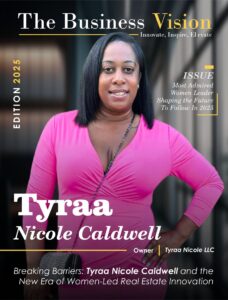Launching a startup is exhilarating—but fraught with risk. Founders must juggle funding, product-market fit, team culture, and execution under immense pressure. Mistakes are inevitable. But what separates great founders from the rest is how they avoid repeating those mistakes—or design their approach to minimize them from the start.
Here, we spotlight five high-impact founders who have openly discussed the pitfalls they encountered and how they adjusted to avoid critical errors in future ventures. Their lessons are not just for first-time entrepreneurs—they’re blueprints for sustainable, resilient leadership.
1. Elon Musk: Maintain Control Early On
Known for: Tesla, SpaceX, PayPal, Neuralink
What went wrong:
In the early days of his first company, Zip2, Elon Musk sold a controlling stake to investors, which led to him being sidelined from major decision-making. Despite the company’s success, he felt the direction didn’t fully reflect his vision.
What he learned:
Musk realized that early-stage founders often give up too much equity or decision-making power too soon. In his later ventures—Tesla and SpaceX—he maintained a firm grip on the company’s vision, direction, and product roadmap.
Avoidance strategy:
- Maintain strategic ownership when fundraising.
- Create clear governance structures from the beginning.
- Prioritize investor alignment, not just capital.
Takeaway:
If you want to build something transformative, ensure you can steer the ship. Don’t trade away control too early for short-term security.
2. Alexis Ohanian: Learn Fast and Pivot Faster
Known for: Reddit, Initialized Capital, 776
What went wrong:
In Reddit’s early days, Alexis and his co-founder Steve Huffman built a product no one wanted. It took several pivots and strategic shifts to get Reddit off the ground. Ohanian also admits they underestimated the importance of hiring the right early employees and being hands-on generalists in the startup’s infancy.
What he learned:
Founders must quickly abandon what isn’t working. They must also learn every aspect of their business—from product and customer service to hiring and operations—before building teams around them.
Avoidance strategy:
- Be a generalist early on—master multiple functions.
- Launch your MVP fast, even if it’s ugly.
- Embrace rejection—every “no” is data.
- Build a strong founding team culture from Day 1.
Takeaway:
The sooner you test, the sooner you learn. Don’t delay shipping or hiring. Do more with less—but do it decisively.
3. Jack Ma: Treat Mistakes as Essential Training
Known for: Alibaba Group
What went wrong:
Before Alibaba, Jack Ma failed the entrance exam to college three times, got rejected from dozens of jobs, and launched several ventures that didn’t work. But he reframed failure as a necessary step, not an obstacle.
What he learned:
Mistakes are a natural part of growth—especially for young founders. Trying and failing builds judgment, perspective, and resilience. In his own words, the 20s and 30s are a time to make “enough mistakes to learn, but not so many that you collapse.”
Avoidance strategy:
- Cultivate emotional resilience through failure.
- Seek mentorship and absorb wisdom from others.
- Reflect often, but don’t overanalyze setbacks.
Takeaway:
Failure is feedback. The best leaders don’t avoid mistakes—they just recover smarter and faster.
4. Jody Porowski: Don’t Let Fear Run the Show
Known for: Avelist
What went wrong:
In the early days of Avelist, Jody faced intense self-doubt, questioning whether she was qualified to be a founder. Fear of failure paralyzed decisions and eroded her confidence. She later realized that fear itself—not any external factor—was the biggest barrier.
What she learned:
By confronting her fear and separating her personal identity from her startup’s success or failure, she was able to operate from a place of clarity and resilience.
Avoidance strategy:
- Name your fears and visualize worst-case scenarios.
- Create contingency plans (personal and financial).
- Recognize that your worth ≠ startup performance.
Takeaway:
You can’t eliminate fear, but you can learn to manage it. Courage is built by stepping into uncertainty repeatedly—with structure and support.
5. Sabeer Bhatia: Avoid Hustle Burnout
Known for: Hotmail
What went wrong:
After co-founding Hotmail and selling it to Microsoft, Sabeer Bhatia openly criticized the toxic “work all hours” culture many startups glorify. He admitted that while Hotmail succeeded, it came at a personal cost—long hours, health issues, and near burnout.
What he learned:
Working smarter—not just longer—is a necessity for longevity in entrepreneurship. Hustle culture may win a battle, but it often loses the war. Founders should focus on sustainable, balanced leadership practices.
Avoidance strategy:
- Build intentional breaks into your schedule.
- Promote a healthy team culture from the top down.
- Invest in mental and physical wellness like you invest in tech.
Takeaway:
The strongest businesses are built by founders who can last—not just those who go fast.
5 Key Patterns from Mistake-Avoiding Founders
| Theme | What to Learn |
| Control Your Path | Don’t trade away direction too early. Maintain influence where it matters. |
| Act Before Perfect | Speed matters. MVPs teach more than planning. |
| Failure is Data | Every mistake adds to your leadership playbook. Learn and move. |
| Team & Culture Count | Early hires shape everything. Choose wisely. |
| Take Care of You | Your energy drives your company. Protect it with intention. |
Final Thought: Mistakes Are Inevitable — Learning Is Optional
Founders aren’t expected to be perfect. The path is unpredictable, high-pressure, and often lonely. But the most admired leaders didn’t just survive it—they learned how to steer through chaos and come out better.
Elon Musk reclaimed control. Alexis Ohanian shipped fast and hired smart. Jack Ma made failure his training ground. Jody Porowski mastered fear. Sabeer Bhatia rewrote the rulebook on hustle.
You can do the same.
Mistakes are part of the journey. But the smartest founders design systems, habits, and mindsets to avoid repeating them. That’s the mark of leadership worth following—and building on.



